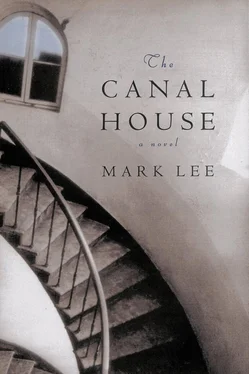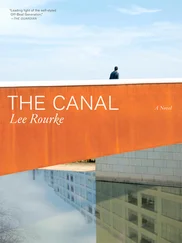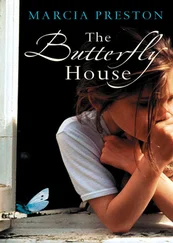The Seria ’s crew used a power winch to lift the plastic-wrapped pallets of supplies out of the hold and place them on the wharf. Collins and Briggs guarded the food while Billy slashed open the pallets. It was very hot now, but people kept coming. Hundreds of them passed through the broken gates and went up the ramp to the wharf. There was no fighting or pushing; they were all too exhausted. The children were hungry and some of them couldn’t walk. If I had been looking down on the crowd, I would have felt overwhelmed by the situation. Instead, I concentrated on whoever was standing directly in front of me. I had ten seconds to decide if he or she was strong enough to get food or if that person needed immediate medical attention. The real division in the world wasn’t race or culture or language, but food. You were either hungry or you were fed. Hunger was the acid that could dissolve all those moral qualities we felt were basic to mankind. Hunger destroyed beauty, pride, and cleverness; it made philosophy and ethics seem like luxuries.
Billy spoke loudly to the Timorese as if the increased volume would help them understand his English. That morning he had his sleeves rolled up to show his biceps. Richard stood next to him with his expensive sunglasses and a Hard Rock Cafe baseball cap. I wondered what the people on the wharf thought of us. Perhaps we seemed as strange as a group of space aliens that had suddenly landed. The Timorese were starving, but most of them acted with a quiet formality that suggested a gentler culture. They never said, “I’m hungry,” in Tetum but instead, “Excuse me for being hungry,” as if the war and famine were somehow their fault.
I looked over my shoulder and saw Daniel and Nicky coming up the ramp to the wharf. My body relaxed for a moment and I breathed deeply. I wanted to run over and embrace Daniel, but I knew that was inappropriate. It was easier to do my job if I didn’t give in to emotion. Daniel nodded as if we’d met at a garden party several years ago, but then we shook hands and that was a mistake. Neither one of us wanted to let go.
“Here you are.” Daniel looked tired and on edge, not as calm as when I had first met him at Kosana. Nicky stood behind him, anxious, forcing a smile.
“Here we all are,” I answered.
Nicky raised his camera. “There’s a bottleneck at the airport and no other organization is bringing in food. Looks like you’re the only game in town.”
“Daniel! Nicky! Good to see you!” Richard said, striding across the wharf. “How long have you been in Dili?”
“A day and a night,” Daniel said.
“I really have to thank you, Nicky. You’re an incredible photographer.”
“Sometimes I get lucky.”
“Remember that photograph you took in Australia? The one where I’m standing in Julia’s cabin and studying the map? People have been calling me from all over. The damn thing’s appeared in at least forty newspapers.”
Nicky didn’t answer. He switched cameras and began to take pictures of the people receiving their food. Richard fell in behind him, listing the different papers that had published the photograph.
Daniel let go of my hand. “The militia have burned about half the city. There’s no government, police, running water, or electricity. General Bates is going slow on deployment. He’s cautious about everything, although this area seems fairly safe in the daytime. The militia are still active in the villages.”
“Where are you staying?”
“A hotel near the government building. No electricity or water, but we have a room. I’ll come back for you around sunset.”
I heard angry voices. An old woman was quarreling with Billy. “No! Only one bag of rice!” he shouted. “We follow rules around here!”
“Be careful,” I told Daniel. “And come back whenever you can.”
I left him and went over to the food line. As the argument got louder, one part of my mind remained quiet and separate, remembering the Canal House. Daniel and I were alone together. It was dark outside. Lying on the red couch, I placed my head on his chest and listened to his heartbeat.
THE CROWD GOT A little smaller, but it never disappeared. People began to arrive from the outlying parts of the city. An afternoon breeze came off the ocean, but the smell of ashes remained in the air. Now hundreds of people were camped on the beach or in the courtyard of the Igreja Motael across the street. People began cooking the food we had given them or made shelters with the blue plastic sheeting. I walked over to the church and watched women loan bowls to one another, then barter for spices and salt.
When the first television crew appeared on the wharf, Richard pretended to ignore them as he passed out food. The cameraman and the reporter with the microphone were blond and sunburned. Germans, I thought, but they turned out to be Dutch journalists. With the refugees shuffling forward in the background, Richard stopped working and gave his first interview. He had learned years ago how to deal with a camera; there was nothing dramatic about his voice and posture. He was your television friend, relaxed and sympathetic, looking directly at the lens.
He must have given over twenty interviews that afternoon. Reporters and photographers lined up next to the refugees while Billy told them, “You’re next, then you’re after him.” The television crews all seemed to take the same shots: the city and the ship, Richard talking, a family receiving their food and cooking it in the churchyard across the street. The cameramen had already walked through Dili and photographed death and destruction. Hand-to-Hand’s activity was a positive ending to a negative story.
Think of the good, I said to myself. I knew that the publicity would help Hand-to-Hand as well as the other aid organizations coming here. Richard was the perfect spokesman, modest but confident, and I could tell that the reporters liked him. “This has nothing to do with me,” he kept saying. “It’s a gift from the people of Britain to the people of East Timor.”
Think of the good . I had, after all, accepted the contradictions of famine relief many years ago. People donated money for tax reasons or to get their name in the paper; aid workers were there to play hero or victim; and the aid itself was often questionable. Sometimes the food was used for political reasons and it destroyed the people you were trying to save.
I knew all this, had experienced it directly, but watching Richard with the television cameras made me angry. Had this always been the goal for him, even when we had first met in Cambridge? Was Hand-to-Hand just an elaborate way for him to help his political career? As I watched, Billy raised a piece of cardboard behind a French cameraman, cutting down the glare and shielding Richard’s face from the sunlight.
Think of the good . I spoke to my helpers, making sure that they understood my instructions, then packed my shoulder bag with medicine and headed for the church across the street. As I left, a Timorese nun approached me. She wore a brown cotton skirt and blouse and a white head scarf. Her body was small and delicate, but her face was severe.
She spoke to me in Portuguese, then switched to English with an Australian accent. “I’m Sister Xavier. Do you work with the United Nations?”
“No. We’re a private organization. Most of the UN staff are out at the airport.”
“I just walked here from Liquica, on the coast road. In the last few days, the militia forced everyone out of their houses. A boat was going to take us to West Timor, but it never arrived. Now maybe four hundred people are on the wharf. The children are dying from sickness and lack of water. Someone must help them as soon as possible.”
“We’ve got food here, but no transport.” I looked over at the churchyard. “If I can get a truck, we can go to your village this afternoon.”
Читать дальше












